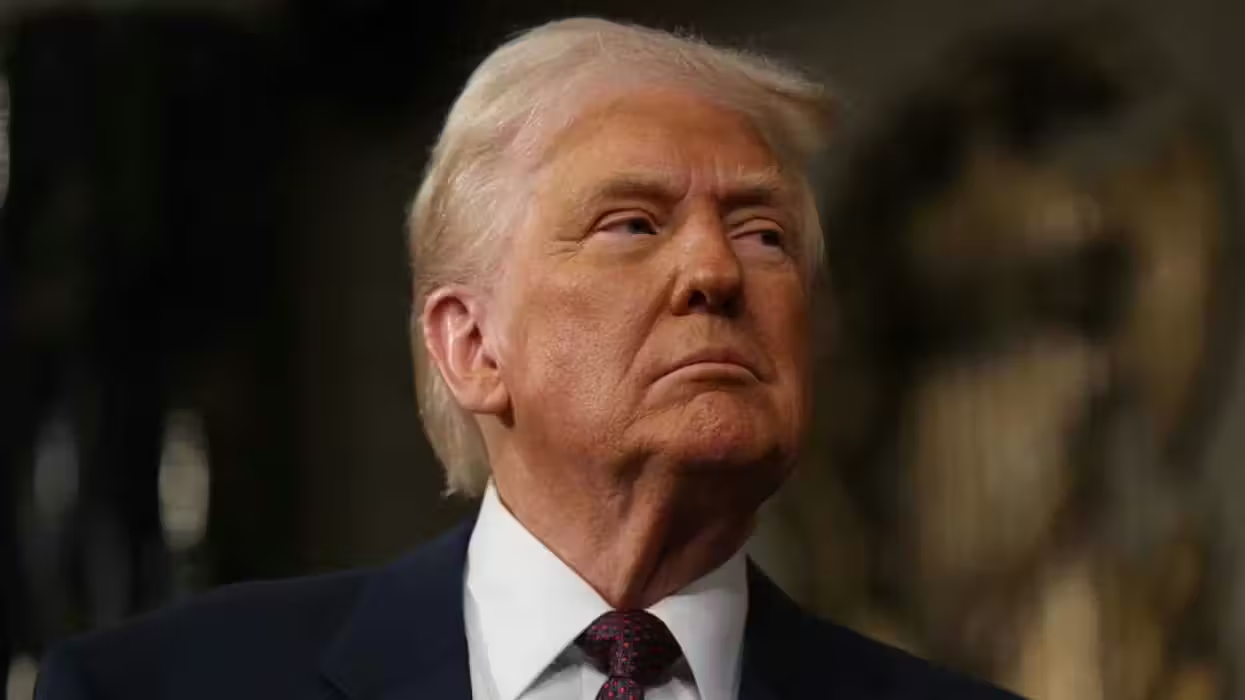
© 2026 Blaze Media LLC. All rights reserved.
"War on Terror" tool hits the homeland.
The aerial drones that have become a critical tool in Uncle Sam's wars abroad are now in use for local law enforcement purposes, according to recent report, raising a host of legal and ethical questions as military and law enforcement functions increasingly blend together.
One case that has raised this issue to national attention is the drone-assisted capture of a rancher family suspected of rustling cattle in North Dakota this past summer.
According to a wire story on Stars and Stripes, in late June a sheriff went looking for six missing cows on the Brossart ranch, and three men brandishing rifles allegedly chased him off the property.
Fearing a standoff, the sheriff called in "reinforcements from the state Highway Patrol, a regional SWAT team, a bomb squad, ambulances and deputy sheriffs from three other counties."
On top of all that, the sheriff also called in an unarmed Predator B (MQ-9 Reaper) drone, which belonged to the border patrol. He said the men on the ranch were carrying rifles, so law enforcement stood down for the night.
The next morning, the predator circled 2 miles above and, with its highly advanced sensor system, ascertained that the ranchers were unarmed. Police then swooped in and made arrests.
This was the first time that the predator -- an unmanned aerial vehicle that has become the global symbol of America's "War on Terror" -- has been used to assist local law enforcement apprehend a U.S. Citizen on U.S. soil.
But this predator drone incident is just the tip of the hellfire missile, so to speak.
Back in 2005, Predator drones were appropriated by Congress to assist Customs and Border Patrol to protect the U.S. borders with Canada and Mexico. There are at least eight active duty drones patrolling the skies over the U.S. Homeland, and since June 2011 they have been "loaned" to domestic law enforcement agencies in North Dakota over a dozen times, according to Stars and Stripes.
The FBI and DEA have also borrowed the CBP drones on numerous occasions, according to law enforcement officials, but no exact figures are available.
Here is a video clip showing a Predator drone in action over the U.S.- Mexico border:
Retired Air Force General Michael C. Kostelnik heads the office that supervises the drones, and he has stated in the past that Predators are flown "in many areas around the country, not only for federal operators, but also for state and local law enforcement and emergency responders in times of crisis."
At a minimum, it would appear the usage of drones for local law enforcement could violate the Posse Comitatus Act, a federal law passed in 1878 that sought to separate the military and law enforcement functions unless a specific Congressional authorization is enacted.
But the expansion of the national security apparatus in the U.S. may have already outpaced some elements of Posse Comitatus. The Coast Guard, for example, falls under the enormous Department of Homeland Security bureaucracy, and neither one is therefore legally covered as part of the U.S. military under Posse Comitatus.
In addition, courts have affirmed for many years that outside aerial surveillance does not require a warrant. The justification from this is that if a civilian plane or helicopter passing overhead can see something in plain view, so can law enforcement. The DEA has made extensive use of this privacy loophole to find drug growing operations with low-flying aircraft.
Many law enforcement advocates point to the usefulness of the drones, and the possibility that they could provide police with critical and even life-saving information during hostage standoffs or disaster scenarios.
When police finally did swoop in on the Brossart ranch last June, they did find the six missing cows. Five of the Brossarts now face a total of eleven felony charges, including terrorizing a sheriff.
A victory for law enforcement, perhaps, but it opens many questions for Americans concerned about government's technological intrusion into the lives of ordinary citizens.
Want to leave a tip?
We answer to you. Help keep our content free of advertisers and big tech censorship by leaving a tip today.
Want to join the conversation?
Already a subscriber?
more stories
Sign up for the Blaze newsletter
By signing up, you agree to our Privacy Policy and Terms of Use, and agree to receive content that may sometimes include advertisements. You may opt out at any time.
Related Content
© 2026 Blaze Media LLC. All rights reserved.
Get the stories that matter most delivered directly to your inbox.
By signing up, you agree to our Privacy Policy and Terms of Use, and agree to receive content that may sometimes include advertisements. You may opt out at any time.







